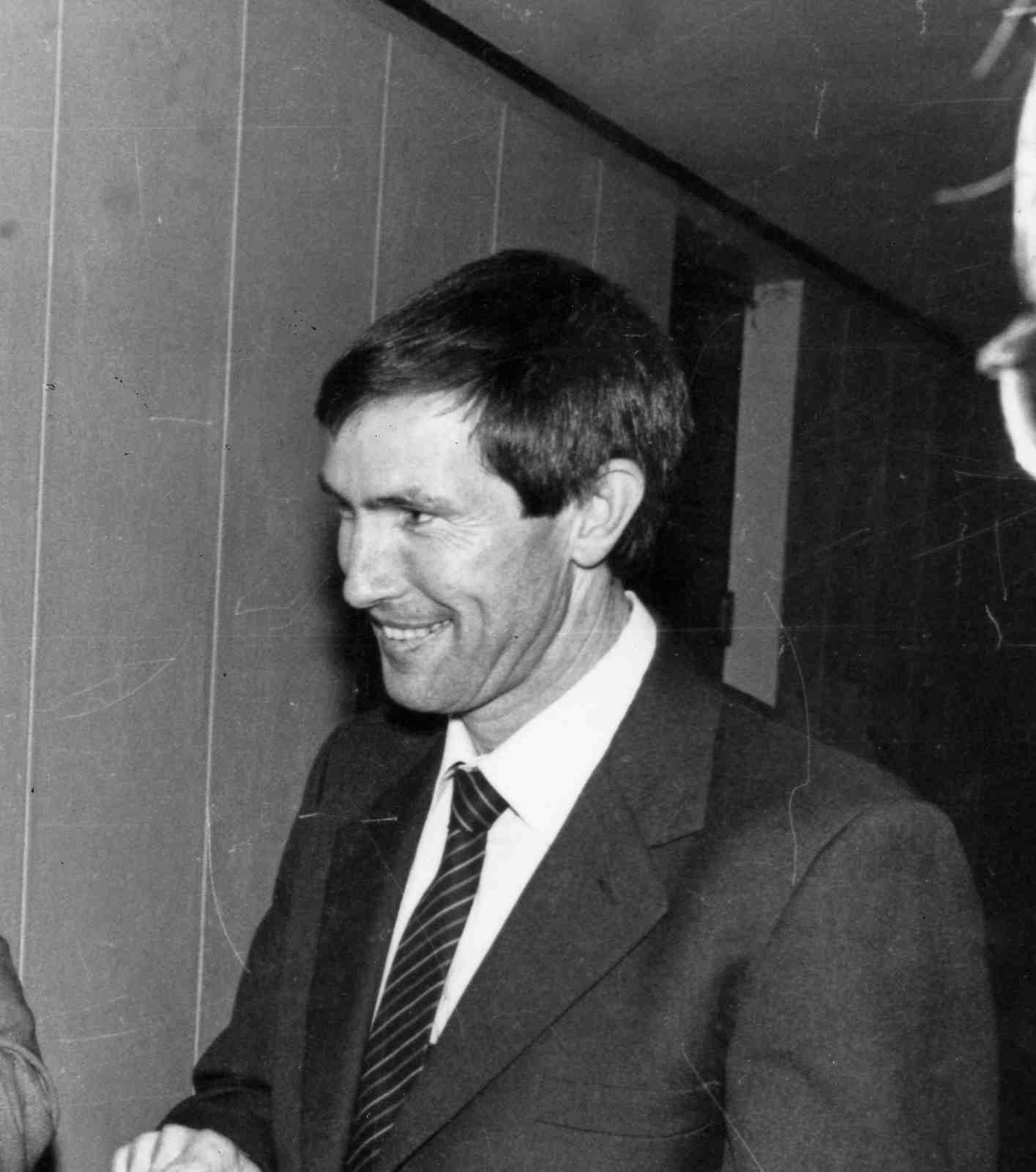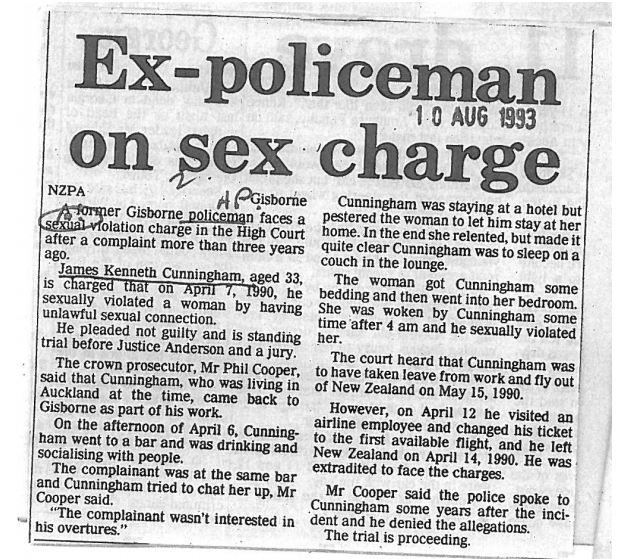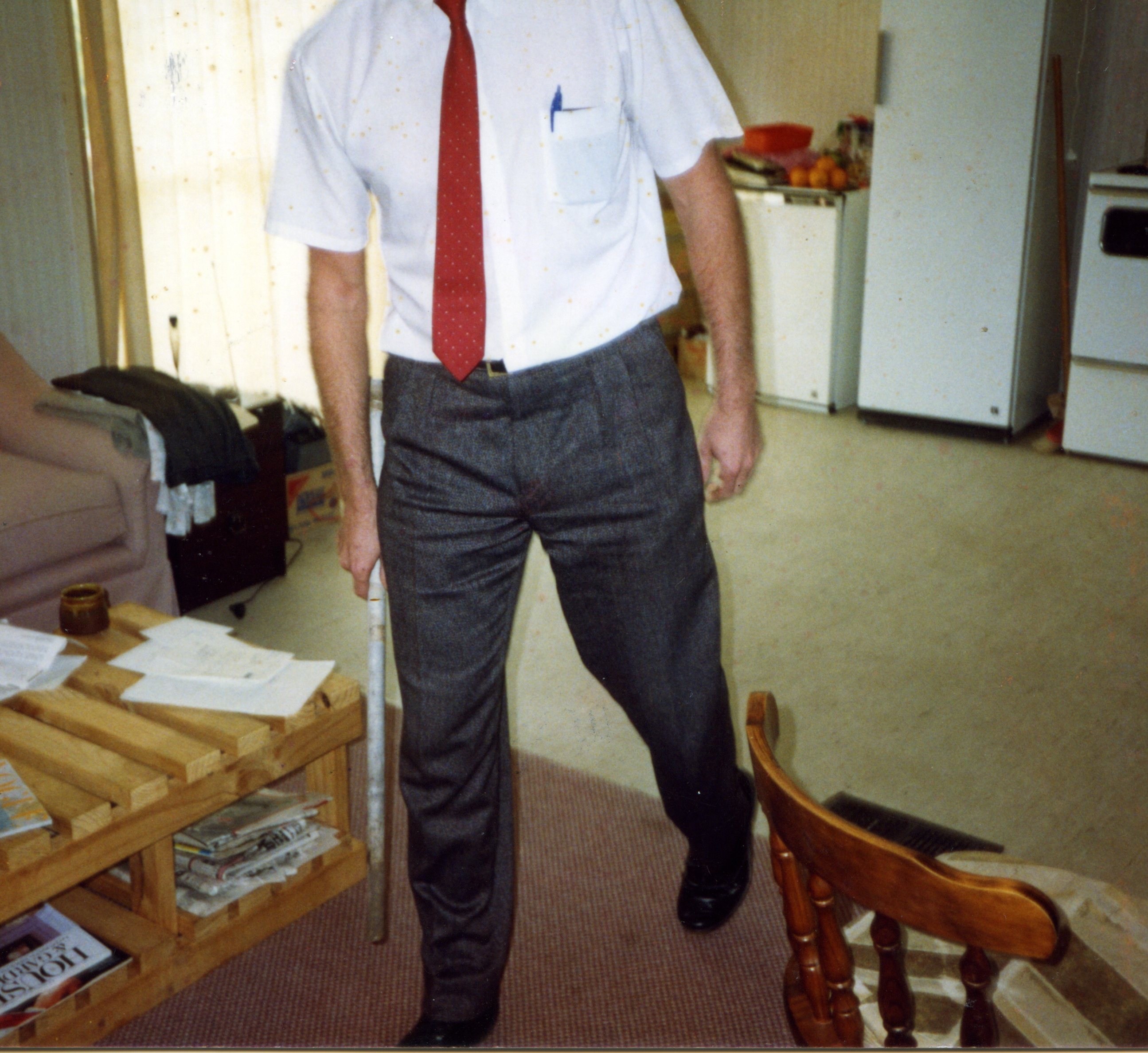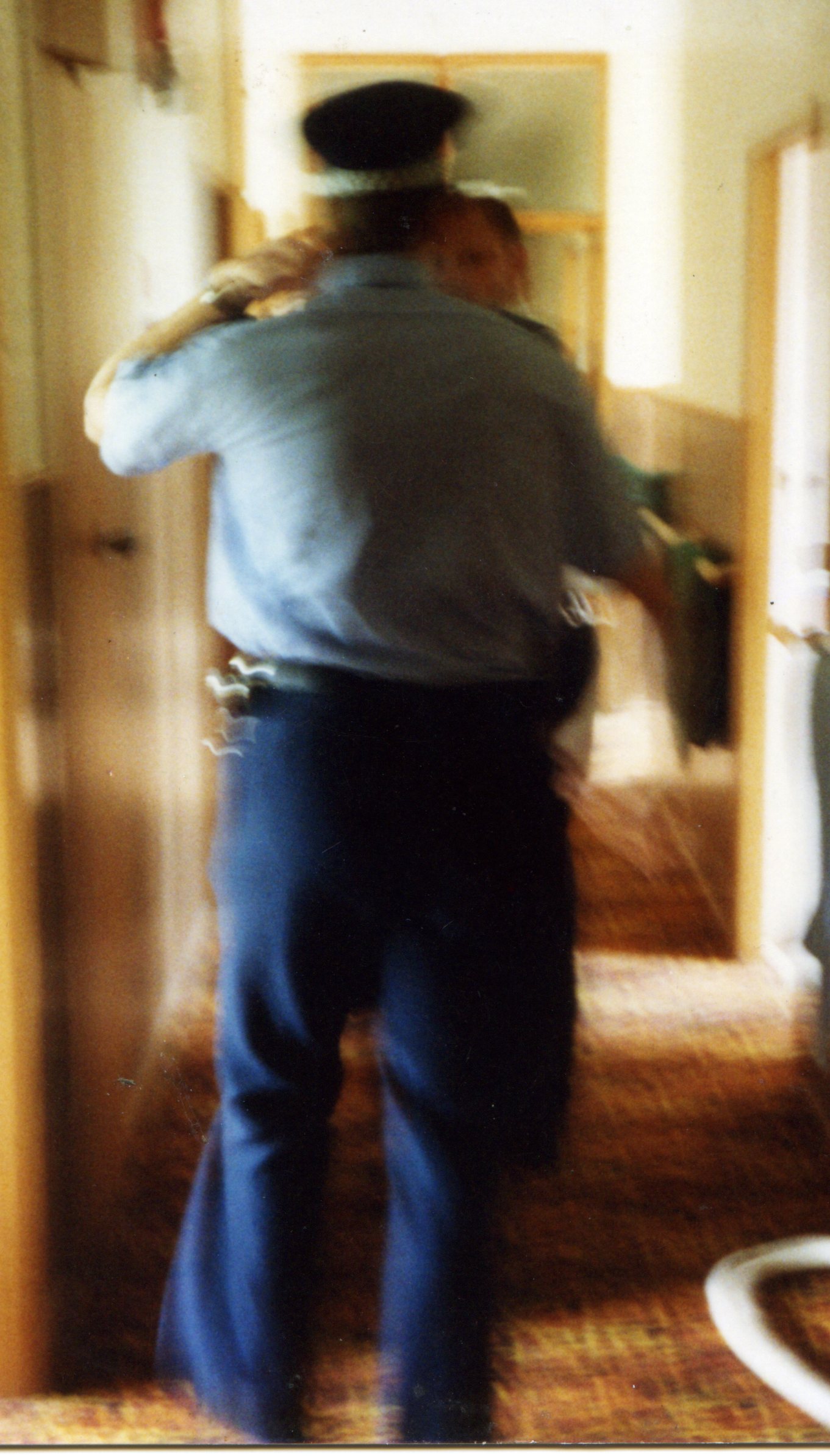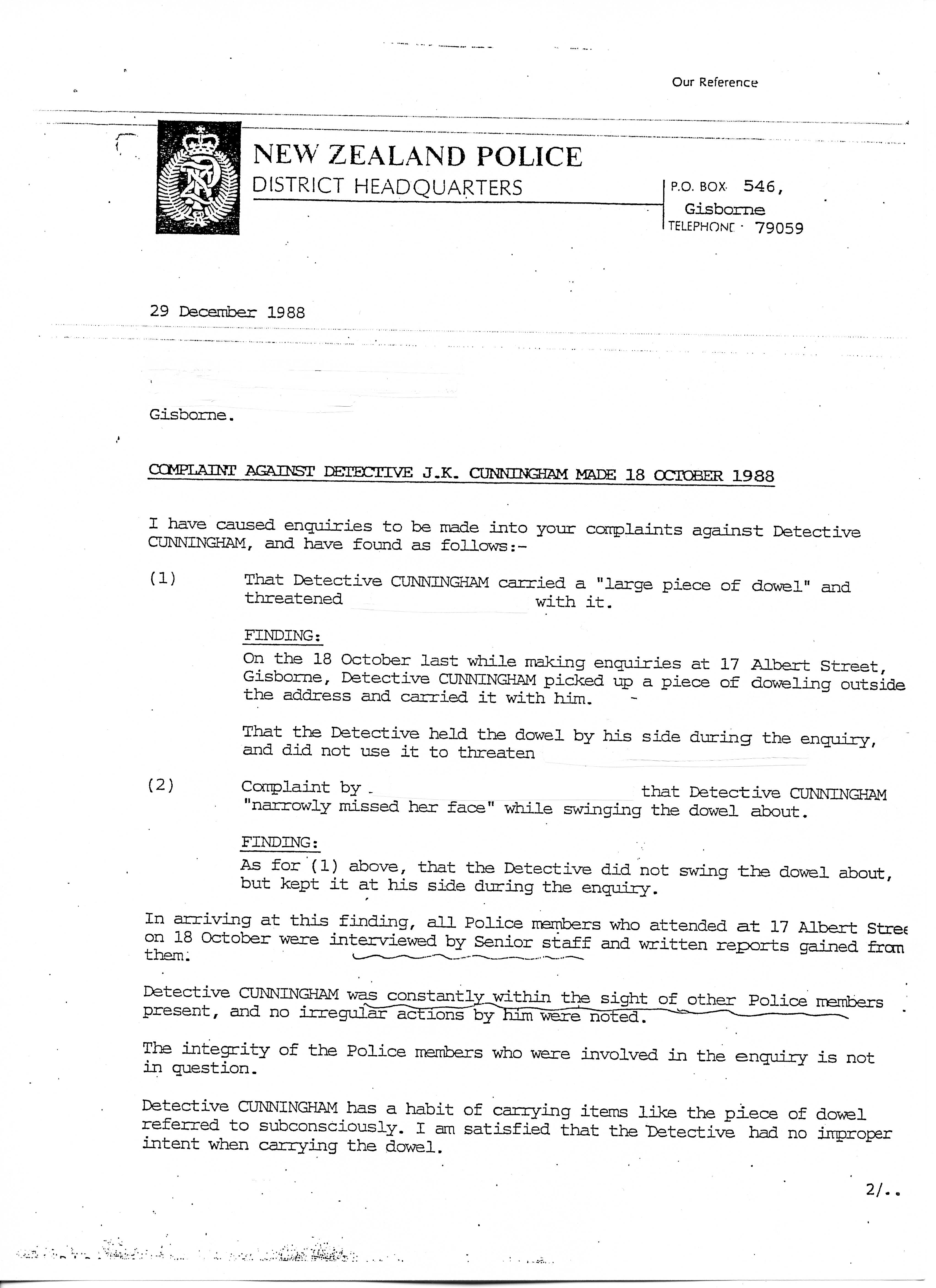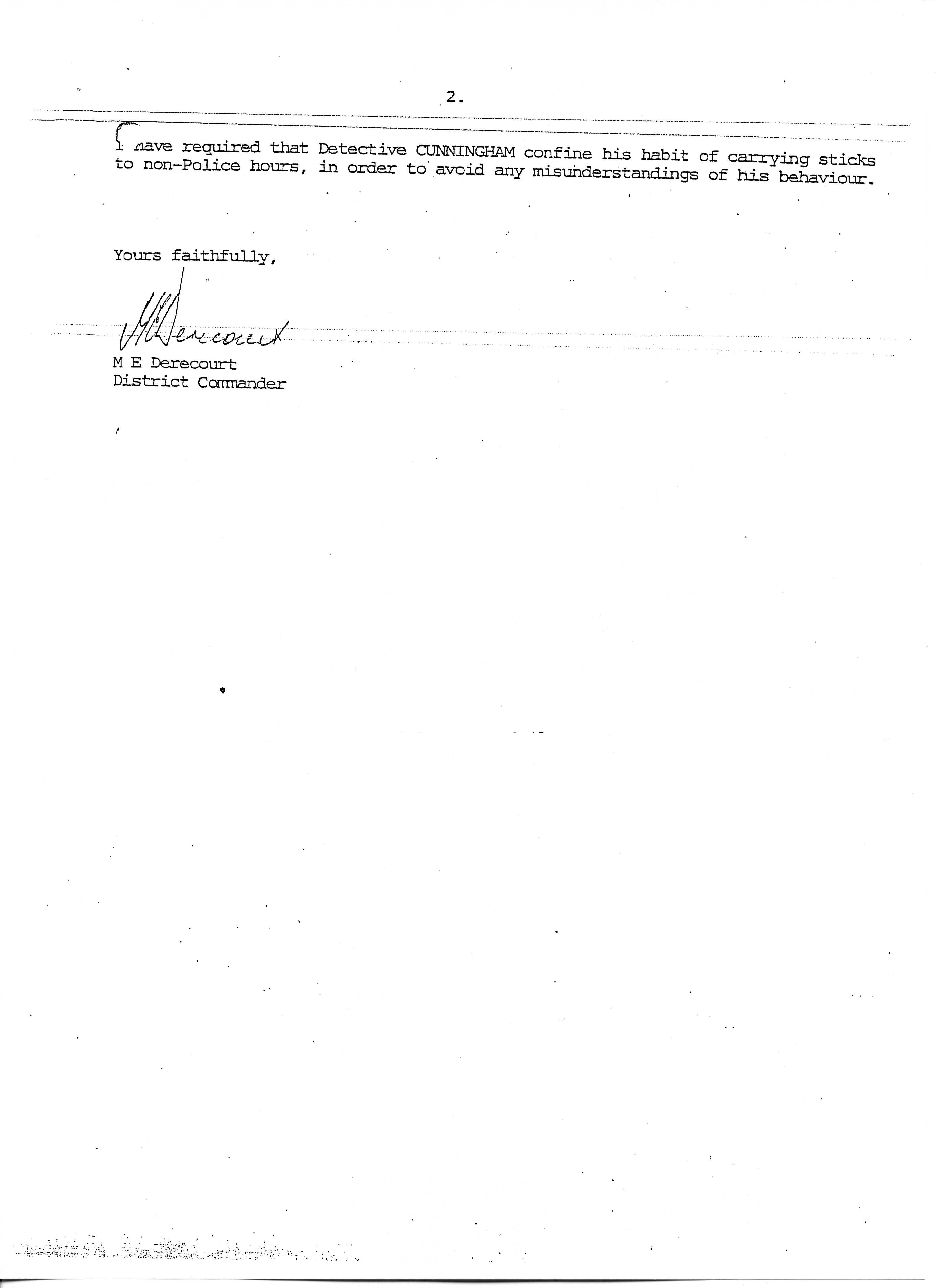In a previous post we referred to false charges being brought against two of the brothers. The charges of assault were laid by Detective Thomas under the crimes act, the most serious form of indictment that can be laid. Thomas was determined to paint his victims as criminally violent, after all thats what he had led Jenni McManus and various others to believe – Thomas also intended his victims to serve time in prison.
If you have read the previous post there was another motivation behind this particular endeavour. Thomas was assiting in the receivership of Lew Holdings and he knew that the brother that owned that company would be a very credible witness an any proceeding against him or Farrow Finance.
Thomas was also aware that the brother had already met with senior management at Farrow and that this particular brother had accused Thomas of corruption and having been behind the collapse of the other family business’s. Farrow had agreed to look at advancing more funds and that in the event that they couldn’t they agreed to grant an extension of time to allow that brother to refinance.
The brother had been led to believe that Farrow were indeed set to advance the funds. Several telephone calls made between the 4th and 10th of October 1988 confirmed this. In the weeks following the meeting in Auckland Mr Michael Barber, one of Farrow’s senior managers, had stated in numerous telephone conversations that all was going to plan and advised the brother to continue the preparations as planned to open the business in late October.
Contrary to the undertakings of Paul Rooney, Farrows CEO, and Barbers advices Farrow was in fact surreptitiously moving to place the development into receivership. Judith Potter and Paul Rooney the directors of Farrow signed the required papers on the 12th of October. These papers were found in police files 22 years later – why we’re not sure? – actually we’ve got a pretty good idea!
Very early on the Morning of the 13th of October 1988 Brian Coombe, an employee of Ferrier Hodgson Farrows appointed receiver, appeared at the entrance to the business, Albert Park. Coombe was accompanied by a large group of police officers who were acting under the instructions of, you guessed it, Detective Malcolm Thomas.
Coombe had obviously conspired with Detective Malcolm Thomas on the evening of the 12th, in attempting to unlawfully evict the family. The brothers had a genuine lease on adjoining residential units, needed to protect their investment and the creditors that had been guaranteed payment; following Farrows assurances.
In the days prior to the receivership of October 13th the brothers had, however, advised the creditors to uplift their goods and letters of authorisation had immediately been sent.
The reason? An earlier telephone call to the Department of Health on the 7th October had alerted the family to some very concerning information: evidence that placed Farrows continuous and obviously spurious reassurances in serious doubt. The Health Departments, Dr Guthrey had fortunately let slip whilst talking to one of the brothers, posing as Jonathan Egglestone. Guthrie had claimed that the business was about to be placed in receivership and it was therefore unlikely that poor old Jonathan would get his money back.
As an aside, a second call to Guthrie was made soon after the 13th October. Coombe had alleged on the morning of the 13th that one of the reasons Farrow had reneged was allegations by the health department that the license had been obtained by false pretense.
During that call Guthrie, believing that she was talking to the receivers in Australia, confirmed her contact with Farrow Finance and Brian Coombe in the weeks prior – Guthrie had mislead Coombe and Farrow; alleging that the businesses license had been fraudulently obtained. There is no doubt that Guthrie’s malicious and unlawful actions had contributed to Farrows decision.
Thomas’s involvement posed a two fold danger, based on Farrows instructions the brothers had reassured the creditors that they would all be paid. Detective Thomas, meanwhile had been busy accusing the brothers of ripping off creditors, inciting repossessions and then subsequently laying false criminal charges.
The risk was to great. The brothers determined after further research that Guthrie’s apparent insider knowledge was accurate and so took the precaution of ensuring that their obligations to the creditors of that project were met.
The goods were returned. This action doubtless annoyed Thomas, after all he had, as his previous actions would indicate, assured Farrow of a positive result. Thomas had organised for Coombe to employ his mates, corrupt ex-police officers come part time security and they had failed to live up to Thomas’s recommendation. Thomas and the owner of that business, ex-police officer, Brian McBreen then organised for a set-up to occur allowing them to falsely allege that an assault had occured. Thomas then organised for the brothers to be arrested – not just any arrest though Thomas enjoyed trying to humiliate the brothers, in much the same psychotic way he had humiliated Dickey Maxwell.
Thomas sent one of his best SS officers; enter the completely psychotic and deranged Detective Cunningham. Cunningham entered the building (a geriatric nursing home), uninvited, with out a warrant and armed with a weapon, a 1 metre hardwood truncheon.
The brothers who doubtless he had intended to seriously assault were not there. This did not stop Cunningham however he was ready to rock and roll. This actually shocked the uniformed officer accompanying him. The officer stepping in between Cunningham and the intended victim, the third brother, who fortunately had the presence of mind to grab a camera that had been sitting on a nearby table; photographs were taken most, because of the speed of the assault, were not successfully developed.
Two of the photographs, however, did show Cunningham and what had occurred. The first is of Cunningham advancing towards his victim, screaming “I’m going to bash your scull in XXXXX” the second is of a uniformed senior constable in retreat forcibly pushing Cunningham down the corridor. Whilst the quality is not that great you can clearly see the raised arms, with the senior constable Dunning attempting to grab and control Cunningham.
Knowing how corrupt the police command had been to date, in defending seriously bent and violent cops, only the first photograph was supplied with an accompanying complaint.
Later that same day the two falsely accused brothers were arrested at the office of their solicitor. The brothers, completely traumatised by events earlier that morning had agreed to meet at their solicitors office. It was the only place they felt half safe. They also knew that the photo’s taken that morning had lacked the all important identifying face and that Cunningham would no doubt be wearing the same clothing – they were indeed right. At the time the cops sent to collect the falsely charged and arrested brothers laughed; “What do you intend doing with your holiday snaps boy’s, where you’re going you won’t need them”!
How wrong they were. The trial was transferred to Napier a city that did not have quite the same bent cop loving flavour as Gisborne, following application by the brothers; the two brothers were found not guilty of the false charges Thomas and McBreen had conspired to bring – by a Jury. It can not be emphasized enough that most juries at the time in New Zealand were prone to believing anything the police held to be true.
Cunningham, however, was not at the trial, why? well he was on the run. Despite what Derecourt had said in his letter of response to the brothers complaint, Cunningham was not sane, far from it; he should never have passed muster as police officer. Cunningham had fled the country after allegedly sexually violating a young woman, for three years he successfully evaded demands to return voluntarily and was eventually forcibly extradited.
This is where it gets even more interesting. Police with the assistance of Crown Law had always been successful in avoiding the prosecution of their officers by intentionally separating previous offending, so as to avoid any ability for a jury to accurately determine guilt. This method was employed by “fellow” officers at a local level and by senior Police at HQ Wellington; which at the time was commanded by John Jamieson. This method was still employed as recently as the Clint Richards, Bob Scollum and Brad Shipton rape cases in 2004 – 2007.
Those alleged rapes occurred around the same time, Under commissioner John Jamiesons watch, we can see a pattern; can you?
We believe, Cunningham had been tipped off by his fellow corrupt CIB officers (including Malcolm Thomas; who could not afford to have Cunningham’s serious offending raised at the brothers trial) allowing Detective James Kenneth Cunningham to avoid arrest and abscond to the united Kingdom.
The ruse worked after all who in the jury would ever remember what had happened at the Albert Park rest home three years earlier.
Incidentally Phil Cooper was the crown prosecutor in Cunningham’s trial. We wonder whether Cooper ever sought to raise the prior allegations of violent psychotic behaviour; we’re also given to wonder if the assault involved penetration with a length of wooden dowel or a similar device, given Cunningham’s subconscious habits as Mervyn Derecourt had noted less than 6 months prior? Derecourt had required that Cunningham confine his habits to outside police hours; Cunningham had obviously followed those orders!
Derecourt had also noted in a subsequent report to internal affairs that Cunningham was highly regarded by his fellow CIB officers in Gisborne (you know the same group of psychopaths; the nine unstoppable and untreatable predators, that Chief Inspector Ratahi had himself labelled disturbed and corrupt) and suggested that he “needed counselling”. We’re of the view, however, that Cunningham should have been summarily dismissed in October 1988!
